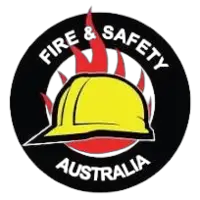
This role has a moderate level of AI exposure. AI can enhance efficiency for some tasks, but this job still relies on human skills and decision-making.
Explore all careersAn Emergency Services Officer (ESO) ensures site safety during emergencies, assesses situations, and arranges medical treatment for casualties.
Get qualified to work as an Emergency Services Officer (ESO) with a course recognised across Australia. Speak to a training provider to learn more.



















In Australia, a full time Emergency Services Officer generally earns $1,500 per week ($78,000 annual salary) before tax. This is a median figure for full-time employees and should be considered a guide only. As you gain more experience you can expect a potentially higher salary than people who are new to the industry.
 Courses.com.au Team
Courses.com.au Team
The emergency response sector has seen a strong increase in employment numbers over the last five years. There are currently 19,700 people working in this field in Australia and many of them specialise as an Emergency Services Officer. Emergency Services Officers may find work across all regions of Australia.
Source: Australian Government Labour Market Insights
 Courses.com.au Team
Courses.com.au Team
If a career as an Emergency Services Officer interests you, consider enrolling in a Diploma of Paramedical Science. This course will prepare you for an emergency response role with subjects covering basic life support and transport of patients to a medical facility.
 Courses.com.au Team
Courses.com.au Team
Browse occupations related to Emergency Services Officer (ESO)



If you're looking to make a difference in your community while pursuing a rewarding career, then the Emergency Services Officer (ESO) courses in Gold Coast are an excellent place to start. With a total of 18 courses available, learners can find suitable options whether they are just starting or seeking to upskill in this field. A wide range of beginner courses, like the Certificate III in Emergency Response and Rescue RII30719 and the Certificate II in Fire Protection Inspection and Testing CPP20521, provide foundational knowledge and skills that are essential for success in emergency services.
Gold Coast also offers advanced learning options for those with prior experience or qualifications. The Diploma of Emergency Health Care HLT51020 and the Graduate Certificate in Emergency and Disaster Management are designed to build your expertise and enhance your career opportunities within the emergency services landscape.
Numerous training providers deliver these courses in the Gold Coast area, ensuring learners have access to quality education. Institutions such as Baseline Training Pty Ltd, CERT Training, and FSA are just a few of the organisations committed to nurturing the next generation of emergency service professionals. Whether you're interested in roles related to ambulance services or seeking a certification in fire safety, these providers are equipped to offer you the support needed to succeed.
For those with no previous experience, the Gold Coast is home to a variety of beginner courses that focus on practical skills required in emergency situations. Training options include Provide Pain Management PUAEME008, Participate in a Rescue Operation PUASAR022, and Confine Small Workplace Emergencies in a Facility PUAFER008. Each course is designed for hands-on training to ensure you are industry-ready upon completion.
In addition to the courses offered, the Emergency Services Officer (ESO) career path is closely linked to relevant fields of study. For instance, if you're interested in healthcare and emergency response, explore our comprehensive healthcare courses or specific ambulance and paramedic training options in the Gold Coast. With the right training, you can make a significant impact in emergencies, ensuring safer communities and environments.